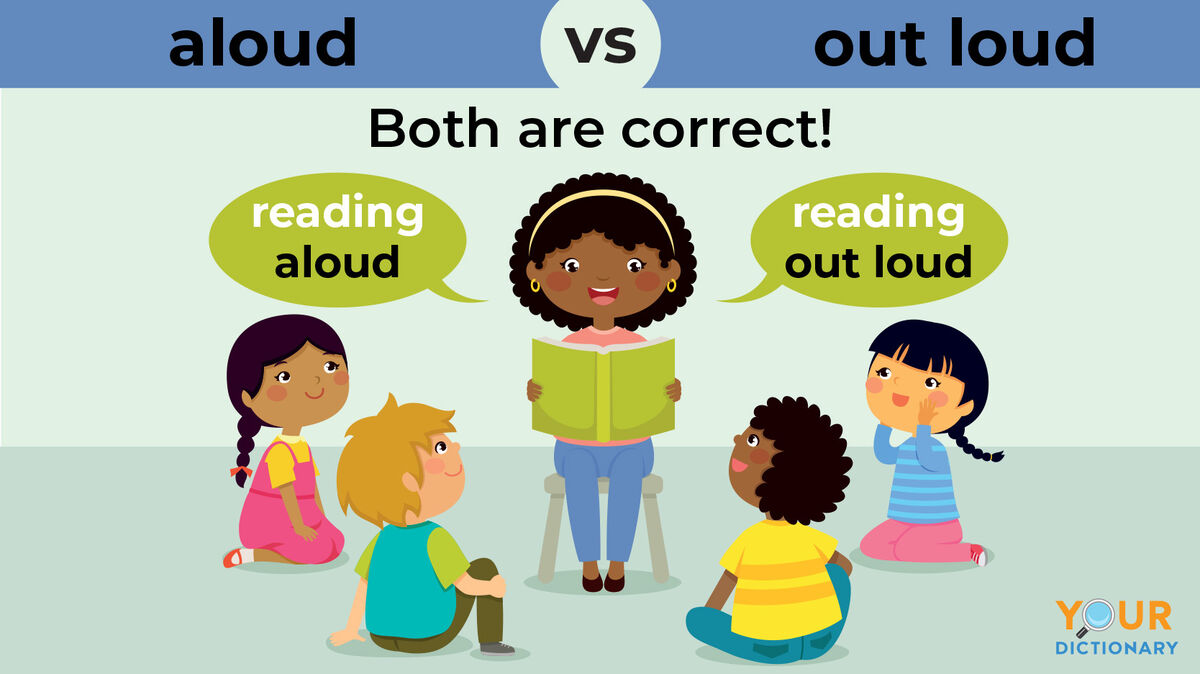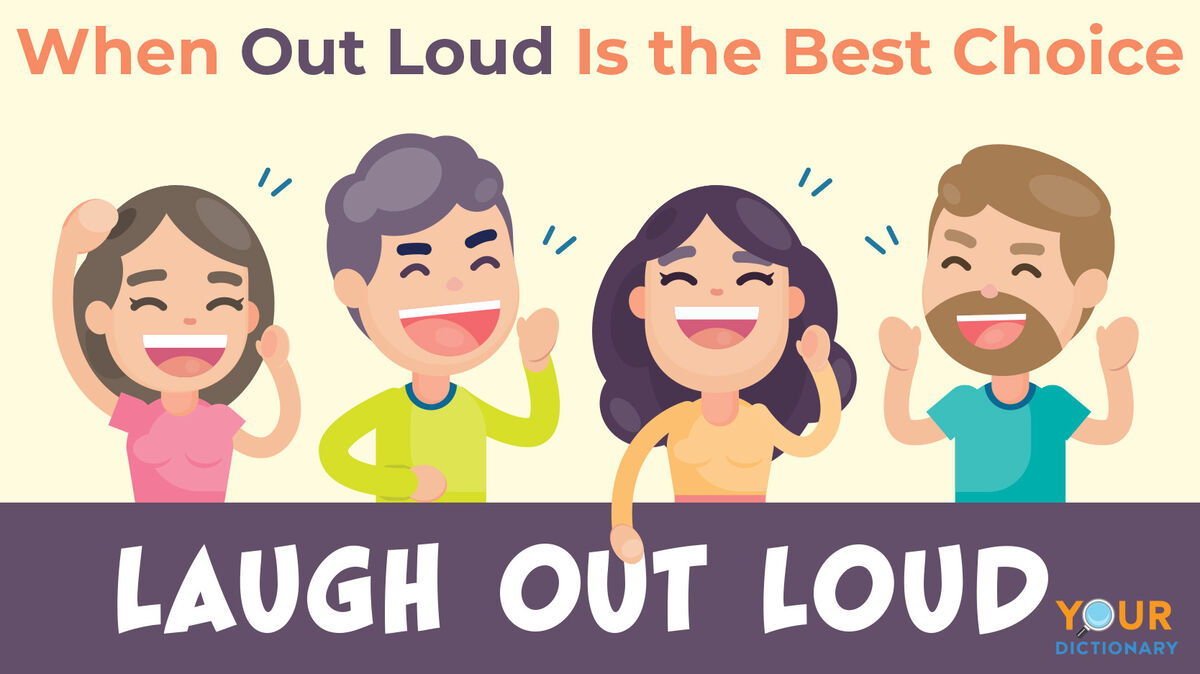
The word aloud and the phrase out loud are very similar. Their spelling and pronunciation are similar, and they even look a lot alike in writing. Not all closely related words mean the same thing or can be used the same way, so it's natural to wonder how these terms are used.
Aloud vs. Out Loud: What to Consider
The word aloud has been part of the English language a lot longer than the phrase "out loud" has been used. At one point in history, "out loud" was considered nonstandard, but that is no longer the case. Aloud is more formal than "out loud," but both are appropriate to use in many contexts.
- definition - Both terms refer to using one's voice to speak up in a way that is audible.
- grammar - They both function as adverbs. Aloud is an adverb, while out loud is an adverb phrase.
- nuance - When referring to sudden displays of emotion or outbursts, the phrase out loud is preferred.
- formality - Aloud is somewhat more formal than "out loud." Both terms are fine in conversations or informal writing, but aloud is generally preferred in formal communication, unless the word is used to describe an outburst rather than simply vocalizing information.
Aloud and Out Loud in Context
While aloud and out loud have the same denotative meaning, the dictionary definition isn't all that matters in word choice. It's also important to consider the connotative meaning and language usage customs when deciding between these terms.
When Aloud and Out Loud Both Work
Consider a few situations in which aloud and out loud can easily be used interchangeably.
- You'll need to recite your assigned poem aloud in class. / You'll need to recite your assigned poem out loud in class.
- That joke made me laugh aloud. / That joke made me laugh out loud.
- I love to read aloud to my little brother. / I love to read out loud to my little brother.
- Each team will share their ideas aloud. / Each team will share their ideas out loud.
The word audibly could be substituted for aloud or out loud in the sentences above. That's because audibly can be a synonym for both terms in these contexts.
When Out Loud Is the Best Choice
There are a few situations where it would be much better to use out loud rather than aloud. They generally refer to outbursts or otherwise speaking up in a boisterous manner.

- Sylvia blurted the answer out loud.
- I was so excited that I yelled out loud.
- Sometimes it feels good to scream out loud.
- Not known for subtlety, she exclaimed her feelings out loud for everyone to hear.
While the above sentences would still make sense if either aloud or audibly was substituted for out loud, that wording would not be ideal. In situations where out loud is most appropriate, words like loudly, noisily or even vociferously would be better synonyms to use.
Allowed vs. Aloud: Another Confusing Word Pair
Out loud isn't the only term that's easy to confuse with the word aloud. The word allowed is also easy to mix up with aloud. Allowed and aloud are examples of homophones. This means that they sound exactly the same when spoken, though they do not mean the same thing and are spelled differently.
- allowed - giving someone permission to do something (Students will be allowed to work individually or in a small group.)
- aloud - vocalizing something in an audible way (Students will be required to present their reports aloud to the entire class.)
To help remember how to use these words properly, remember that the one that has the word "loud" in it is the one that is about vocalizing, which involves volume.
Making Sense of Commonly Confused Words
It can be challenging to choose between aloud vs. out loud as well as between aloud vs. allowed. Now that you know how to use these words correctly, turn your attention to making sense of other commonly confused words. Start with a similar word pair like alright vs. all right. You'll be on your way to being able to confidently make correct choices time and time again. From there, start exploring context clues so you'll be better prepared to decipher the definition of unfamiliar words you come across while reading.